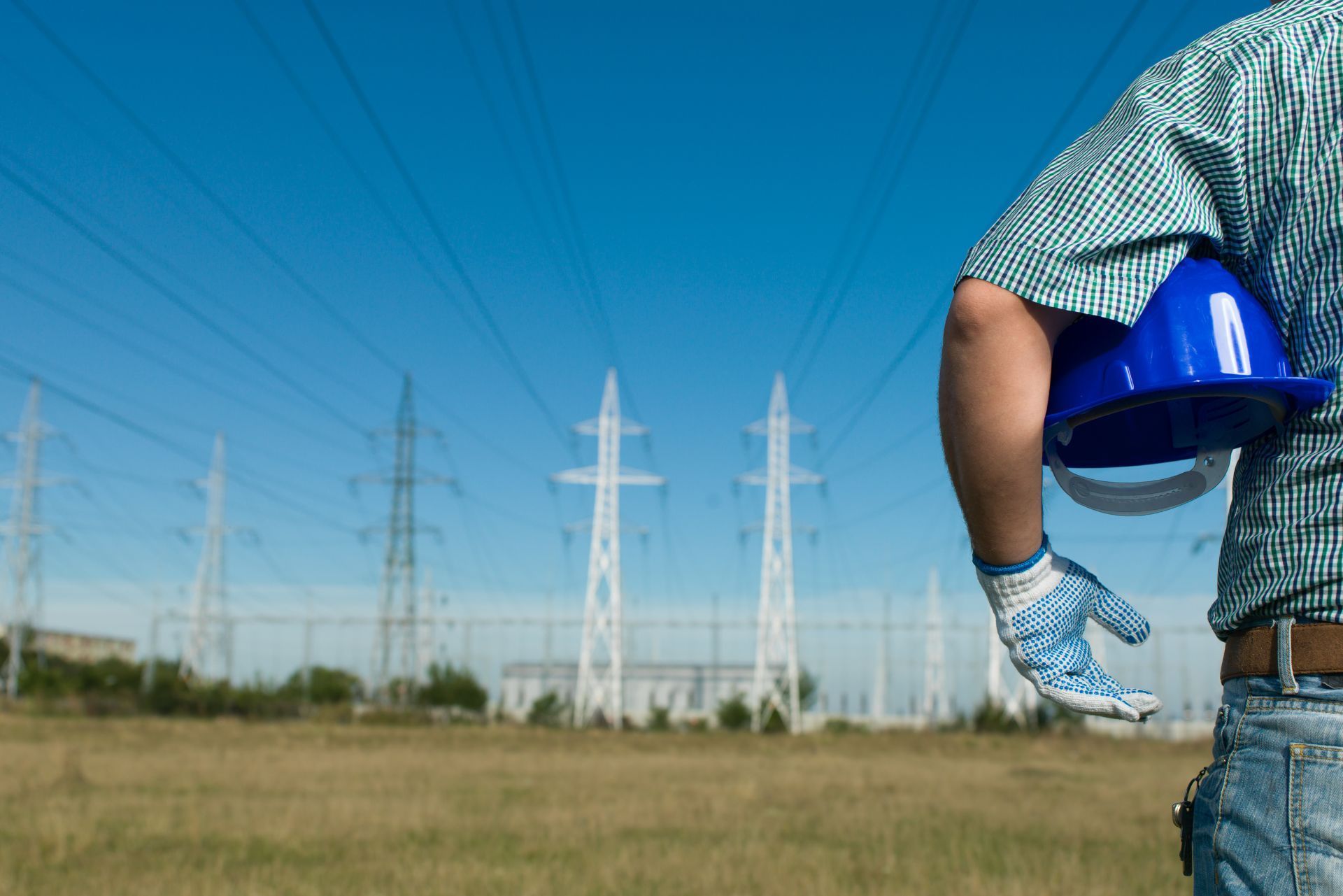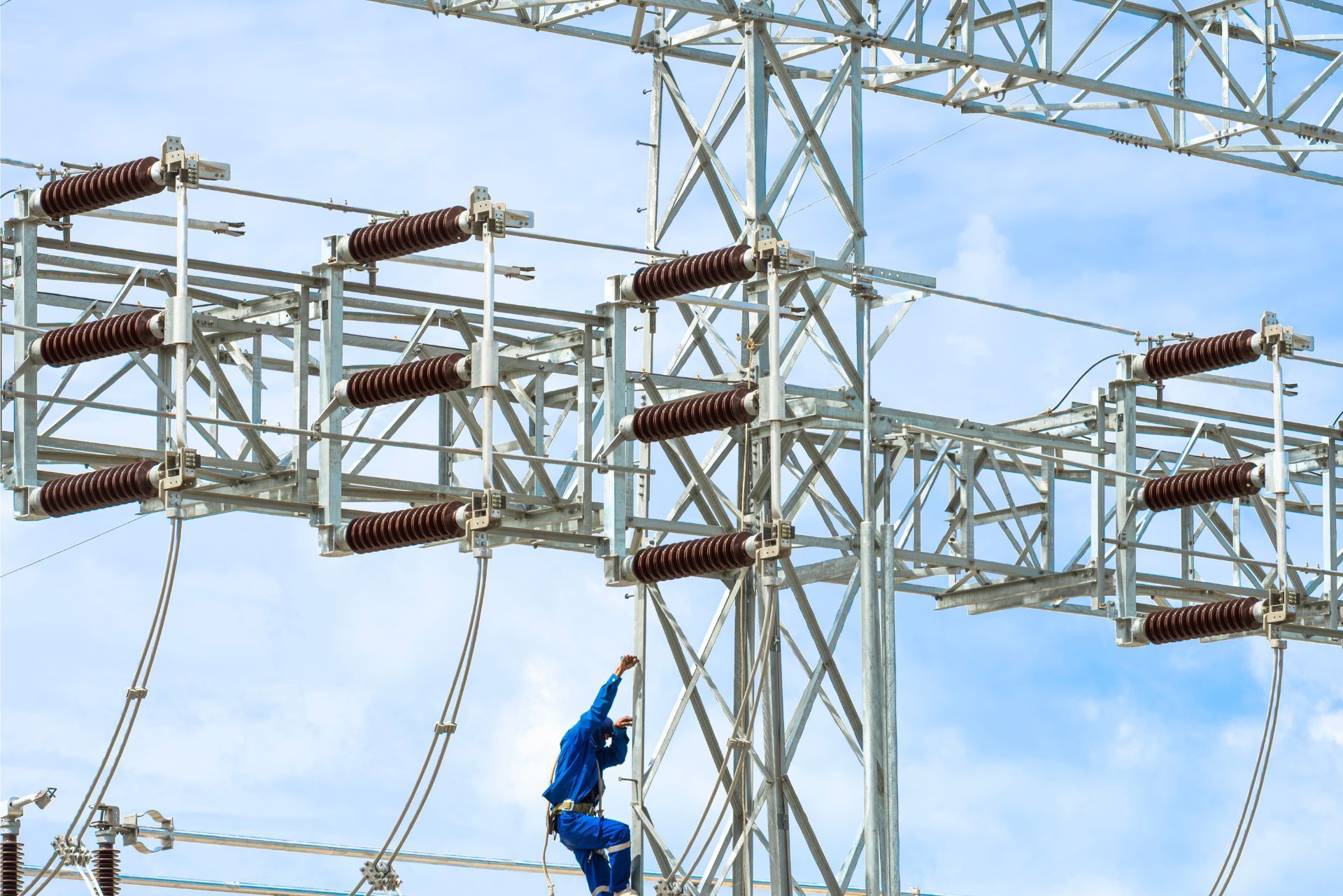Index
Contact Us
Phone
Location
Simi Valley, CA 93065
The Woodlands, TX 77382
Katy, TX 77494
Working as a high voltage electrician involves unique challenges and risks that demand specialized knowledge, skills, and safety measures. One critical aspect that often gets overlooked in the day-to-day hustle is insurance. High voltage electrician insurance is not just a formality—it’s a vital safeguard that protects electricians, their businesses, and their clients from potentially devastating financial losses.
This comprehensive guide delves into everything you need to know about high voltage electrician insurance. From understanding the types of coverage available to why it’s essential and how to choose the right policy, this article aims to equip electricians, contractors, and business owners with the knowledge to make informed decisions.
Why High Voltage Electrician Insurance Is Essential
High voltage electricians work with electrical systems that operate at voltages high enough to cause serious injury or death. The nature of this work inherently carries increased risks compared to standard electrical tasks. These risks translate into potential liabilities that can have significant financial consequences.
According to the U.S. Bureau of Labor Statistics, electricians experience an injury rate of 5.3 per 100 full-time workers, which is higher than the average for all occupations. High voltage work, in particular, involves exposure to arc flashes, electrical burns, and falls from heights, all of which can lead to costly medical bills and lawsuits. The unpredictability of these hazards means that even the most experienced electricians can find themselves in precarious situations, underscoring the necessity of having robust insurance coverage.
Insurance acts as a financial safety net, covering expenses related to accidents, property damage, and legal claims. Without adequate insurance, electricians and their businesses could face bankruptcy or closure after a single incident. Moreover, the costs associated with workplace accidents extend beyond immediate medical expenses; they can include lost wages, rehabilitation costs, and even compensation for pain and suffering, making comprehensive insurance coverage not just a luxury, but a critical necessity.
Protecting Your Business and Reputation
Beyond the immediate financial implications, insurance also helps protect an electrician’s professional reputation. Clients and contractors often require proof of insurance before awarding contracts. Having comprehensive insurance coverage demonstrates professionalism and responsibility, which can be a competitive advantage in the industry. Furthermore, a strong insurance policy can enhance customer trust, as clients are more likely to choose a contractor who can provide assurance that they are protected against unforeseen events. This trust can lead to repeat business and referrals, which are vital for long-term success in the competitive electrical services market.
Meeting Legal and Contractual Requirements
Many states and local jurisdictions mandate certain types of insurance for licensed electricians. Additionally, clients—especially commercial and industrial entities—may require electricians to carry specific insurance policies as part of contractual agreements. Failure to comply can result in fines, license suspension, or loss of business opportunities. Understanding the legal landscape surrounding insurance requirements is crucial for electricians, as it not only protects them from legal repercussions but also positions them favorably in negotiations with potential clients. Being well-informed about the necessary coverage can help electricians avoid costly oversights and ensure they are always compliant with evolving regulations.
Moreover, the insurance landscape is constantly changing, with new policies and coverage options emerging to address the unique challenges faced by high voltage electricians. Staying updated on these developments can provide electricians with additional tools to mitigate risks. For instance, specialized training programs that focus on safety protocols and risk management can sometimes lead to lower insurance premiums, creating a win-win situation for both the electrician and the insurer. By investing in ongoing education and adapting to industry changes, electricians can not only enhance their safety practices but also improve their overall business viability.

Types of Insurance Coverage for High Voltage Electricians
High voltage electricians need a combination of insurance policies tailored to the unique risks of their profession. Understanding each type of coverage and its purpose is crucial to assembling a comprehensive insurance portfolio.
General Liability Insurance
General liability insurance is the cornerstone of any electrician’s insurance plan. It covers third-party bodily injury, property damage, and personal injury claims that arise from business operations. For example, if an electrician accidentally damages a client’s property or causes injury to a visitor on the job site, this policy helps cover legal fees and settlement costs.
Typical coverage limits range from $1 million to $2 million per occurrence, with aggregate limits that cap the total payout over the policy period. Given the high-risk nature of electrical work, opting for higher limits is often advisable. Additionally, some policies may include coverage for advertising injury, which can protect electricians against claims related to false advertising or copyright infringement, further enhancing their financial security.
Professional Liability Insurance (Errors & Omissions)
While general liability covers physical damages, professional liability insurance protects against claims of negligence, errors, or omissions in the electrician’s work. For high voltage electricians, this could include failing to follow safety protocols or design flaws that lead to electrical failures.
This coverage is essential for electricians who provide consulting, design, or inspection services in addition to installation and maintenance. It helps cover legal defense costs and damages awarded in lawsuits related to professional mistakes. Moreover, as technology advances and electrical systems become more complex, the risk of errors increases, making this insurance even more critical for professionals in the field.
Workers’ Compensation Insurance
Given the hazardous nature of high voltage electrical work, workers’ compensation insurance is critical. It provides wage replacement and medical benefits to employees injured on the job, regardless of fault. Most states require employers to carry workers’ compensation insurance once they have employees.
This coverage not only protects workers but also shields the business from lawsuits related to workplace injuries. In high voltage environments, where injuries can be severe, workers’ compensation can cover everything from emergency medical treatment to long-term rehabilitation. Additionally, implementing a robust safety training program can help reduce incidents, potentially lowering insurance premiums over time.
Commercial Auto Insurance
Many electricians use vehicles to transport tools, equipment, and personnel to job sites. Commercial auto insurance covers vehicles used for business purposes, protecting against accidents, theft, and damage.
Personal auto policies typically exclude coverage for vehicles used commercially. Having commercial auto insurance ensures that electricians are protected on the road, which is especially important when transporting expensive equipment or hazardous materials. Furthermore, this insurance can also provide coverage for liability arising from accidents involving company vehicles, ensuring that the business is safeguarded against unexpected financial burdens.
Equipment and Tools Insurance
High voltage electricians rely on specialized tools and equipment that can be costly to replace. Equipment insurance covers loss, theft, or damage to these assets, whether on-site, in transit, or in storage.
This type of coverage can be added as a rider to a general liability policy or purchased as a standalone policy. Given the value and necessity of tools, this insurance helps maintain business continuity after unexpected losses. Additionally, some policies may offer coverage for rental equipment, which can be particularly beneficial when a tool is temporarily out of commission, allowing electricians to continue their work without interruption.
Umbrella Insurance
Umbrella insurance provides an extra layer of liability coverage beyond the limits of existing policies. For high voltage electricians, this can be a crucial safeguard against catastrophic claims that exceed primary policy limits.
For example, if a lawsuit results in damages exceeding the general liability coverage, an umbrella policy can cover the remaining amount, protecting personal and business assets. This type of insurance is especially important in high-stakes environments where the potential for significant claims exists, ensuring that electricians can operate with peace of mind knowing they have a financial safety net in place.
Factors Affecting High Voltage Electrician Insurance Costs
Insurance premiums for high voltage electricians vary based on several factors. Understanding these can help electricians manage costs while ensuring adequate coverage.
Experience and Safety Record
Insurers assess the risk profile of electricians based on their experience and safety history. A strong track record with few or no claims can lead to lower premiums, while a history of accidents or violations may increase costs. Additionally, ongoing training and certifications in safety protocols can further enhance an electrician's profile, showcasing their commitment to best practices. This proactive approach not only helps in reducing insurance costs but also fosters a culture of safety within the workplace, ultimately benefiting both the electrician and their clients.
Scope of Work and Specializations
The types of projects undertaken also influence insurance costs. High voltage work in industrial settings or on large infrastructure projects typically carries higher risks than residential electrical work, leading to higher premiums. Moreover, specialized skills such as working with renewable energy systems or advanced automation technologies may require tailored insurance policies, which can also affect pricing. Electricians who diversify their services may find that certain niches offer more favorable insurance rates, allowing them to balance risk and reward effectively.
Coverage Limits and Deductibles
Higher coverage limits provide greater protection but come with increased premiums. Similarly, choosing higher deductibles can reduce premium costs but requires the insured to pay more out-of-pocket in the event of a claim. Electricians must carefully evaluate their financial situation and risk tolerance when selecting these options. Consulting with an insurance broker who specializes in the electrical industry can be invaluable, as they can help identify the most appropriate coverage levels and deductible amounts tailored to the electrician's specific needs and circumstances.
Location and Regulatory Environment
Geographic location affects insurance costs due to varying state regulations, labor costs, and risk factors such as weather or crime rates. Some states have stricter insurance requirements for electricians, which can impact premiums. Additionally, regions prone to natural disasters, such as hurricanes or earthquakes, may see higher insurance costs due to the increased likelihood of claims. Understanding local market conditions and regulations can empower electricians to make informed decisions about their coverage and potentially seek out more competitive rates in less regulated areas.
Business Size and Number of Employees
Larger businesses with more employees generally face higher insurance costs, especially for workers’ compensation. However, economies of scale and risk management programs can sometimes offset these increases. Implementing comprehensive training programs and safety measures can not only reduce the likelihood of workplace incidents but may also lead to discounts on insurance premiums. Furthermore, maintaining a well-documented safety program can provide evidence to insurers that the business actively mitigates risks, which can be a significant factor in negotiating better rates.
How to Choose the Right Insurance Policy
Selecting the right insurance policy involves more than just comparing prices. It requires a thorough evaluation of coverage options, insurer reputation, and specific business needs.
Assess Your Risks Thoroughly
Start by identifying all potential risks associated with your high voltage electrical work. Consider the types of projects, client requirements, and any unique hazards. This assessment will guide you in choosing appropriate coverage types and limits.
Work with a Specialist Insurance Broker
Insurance brokers who specialize in contractor or electrician insurance can provide valuable insights and access to tailored policies. They can help navigate complex terms and find coverage that fits your budget and risk profile.
Review Policy Exclusions and Conditions
Carefully read the fine print to understand what is excluded from coverage. Some policies might not cover certain high-risk activities or require specific safety measures to be in place. Knowing these details prevents unpleasant surprises during claims.
Compare Multiple Quotes
Obtain quotes from several insurers to compare coverage options and premiums. Remember that the cheapest policy may not offer the best protection. Balance cost with comprehensive coverage and customer service reputation.
Consider Bundling Policies
Many insurers offer discounts for bundling multiple policies, such as general liability, workers’ compensation, and commercial auto insurance. Bundling can simplify management and reduce overall costs.

Common Challenges and How to Overcome Them
High voltage electricians often face challenges when securing insurance due to the inherent risks of their work. Understanding these challenges and strategies to address them can improve access to coverage.
High Premiums Due to Increased Risk
Because high voltage work is riskier, insurers may charge higher premiums or impose stricter underwriting criteria. To mitigate this, electricians can invest in safety training, implement rigorous safety protocols, and maintain a clean claims history.
Difficulty Finding Specialized Coverage
Not all insurance providers offer policies tailored to high voltage electrical work. Working with a broker who understands the industry can help locate insurers that specialize in this niche.
Documentation and Compliance Requirements
Insurers often require proof of licenses, certifications, and safety program documentation. Keeping these records organized and up to date streamlines the application process and reduces delays.
Claims Handling and Disputes
In the event of a claim, disputes over coverage can arise. Choosing insurers with strong reputations for customer service and claims handling can reduce stress and ensure timely resolutions.
Tips for Maintaining Insurance and Reducing Risks
Maintaining insurance coverage and minimizing risks go hand in hand. Here are practical tips high voltage electricians can follow:
- Regular Safety Training: Participate in ongoing safety education to stay current with best practices and regulations.
- Implement Safety Protocols: Develop and enforce strict safety procedures on job sites, including lockout/tagout and personal protective equipment (PPE) usage.
- Conduct Routine Equipment Inspections: Regularly inspect tools and equipment to prevent malfunctions that could cause accidents.
- Maintain Accurate Records: Keep detailed logs of work performed, safety training, and incident reports to support insurance claims if needed.
- Review Insurance Annually: Reassess coverage needs and update policies to reflect changes in business size, scope, or regulations.
Conclusion
High voltage electrician insurance is a critical component of managing the risks associated with this demanding profession. By understanding the types of coverage available, the factors influencing costs, and how to select the right policies, electricians can protect themselves, their employees, and their businesses from financial hardship.
Investing in comprehensive insurance coverage not only provides peace of mind but also enhances credibility with clients and compliance with legal requirements. With the right approach, high voltage electricians can focus on their vital work with confidence, knowing they are safeguarded against the unexpected.
Types of Electrician Insurance We Provide
Areas we serve




